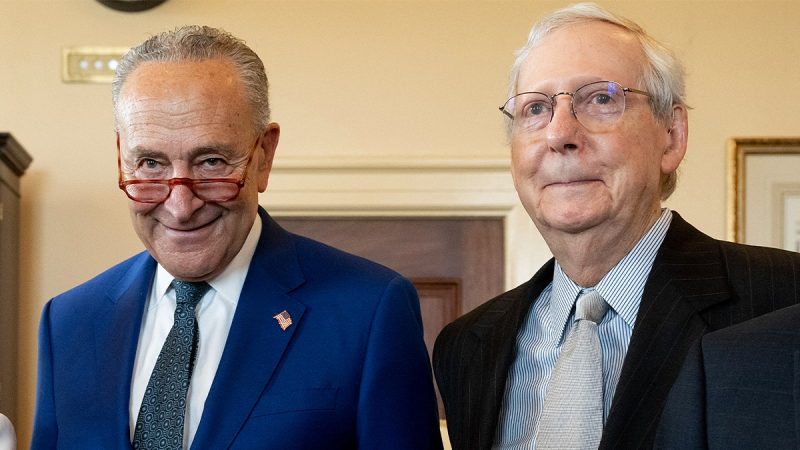The Senate passed a $95 billion national security supplemental package to assist Ukraine, Israel and the Indo-Pacific after a tedious procedural process that came to an end early Tuesday morning.
The final vote was 70 to 29.
The supplemental package does not include any border security provisions and several Republicans spent hours — since the beginning of the weekend — collectively filibustering the package on the Senate floor. Sen. Mike Lee, R-Utah, committed to filibustering the bill for four hours on Saturday and continued early Tuesday.
The package includes $60 billion for Ukraine, $14 billion for Israel, $9 billion in humanitarian assistance for Gaza and nearly $5 billion for the Indo-Pacific. Democrats brought the package up for a vote after Republicans had blocked the $118 billion package that also included numerous border and immigration provisions — negotiated by a group of bipartisan senators and Biden officials — last Wednesday.
The U.S. has already spent more than $100 billion in aid for Ukraine since its war against Russia began in Feb. 2022.
Several Republicans voted against the package and spent the last few days filibustering the movement of the bill.
‘This bill gives the finger to American taxpayers,’ Paul said on the floor before the final vote. ‘This bill gives the finger to all of America — this bill is Ukraine first, America last.’
By Monday, several GOP senators were hoping for a breakthrough to get their amendments heard, which mainly included hardline border security-related provisions.
Sen. Ted Cruz, R-Texas, introduced an amendment identical to the House’s immigration bill, H.R. 2, which would restore most Trump-era restrictions, hire additional border patrol officers and tighten asylum screenings.
Republican Sens. Roger Marshall, JD Vance, and Josh Hawley were just a few other senators who spoke in opposition to the bill on Monday, continuing the filibuster. Meanwhile, GOP Sens. Mitt Romney and Thom Tillis were just a few who urged their colleagues to ‘delay’ no further and pass the package.
Republican Sen. Jerry Moran of Kansas became emotional in a floor speech in support of the bill.
‘I believe in America first, but unfortunately America first means we have to engage in the world,’ Moran said.
Democrats brought the package up for a vote after Republicans had blocked the $118 billion package that also included a slew of border and immigration provisions on Wednesday. Republicans had previously said they would not approve funding for Ukraine unless the overwhelmed southern border was secured first.
The border-foreign aid package was unveiled last weekend and hit a buzzsaw of conservative opposition from Republicans who said the package would normalize historic levels of illegal immigration and continue catch-and-release. Conservatives joined with some liberal Democrats in shutting down the bill, so Senate Majority Leader Chuck Schumer prepared a vote without the border package as a backup plan.
Republican Minority Leader Mitch McConnell had backed funding for Ukraine, but drew criticism from party members who urged lawmakers not to pass foreign aid without securing the border first.
‘I know it’s become quite fashionable in some circles to disregard the global interests we have as a global power, to bemoan the responsibilities of global leadership,’ McConnell said on the floor on Super Bowl Sunday. ‘To lament the commitment that has underpinned the longest drought of great power conflict in human history — this is idle work for idle minds, and it has no place in the United States Senate.’
Schumer said Monday the package is ‘a down payment for the survival of Western democracy and the survival of American values.’
The White House requested the supplemental funding package in October, but it was held up by Republicans who wanted more measures to fix the record-setting border crisis, including greater limits on asylum and limits on releases into the interior. Negotiators worked for months and on Sunday finally released their text.
In addition to the foreign aid package, the failed border package included an ’emergency border authority’ to mandate Title 42-style expulsions of migrants when migration levels exceed 5,000 a day over a seven-day rolling average.
